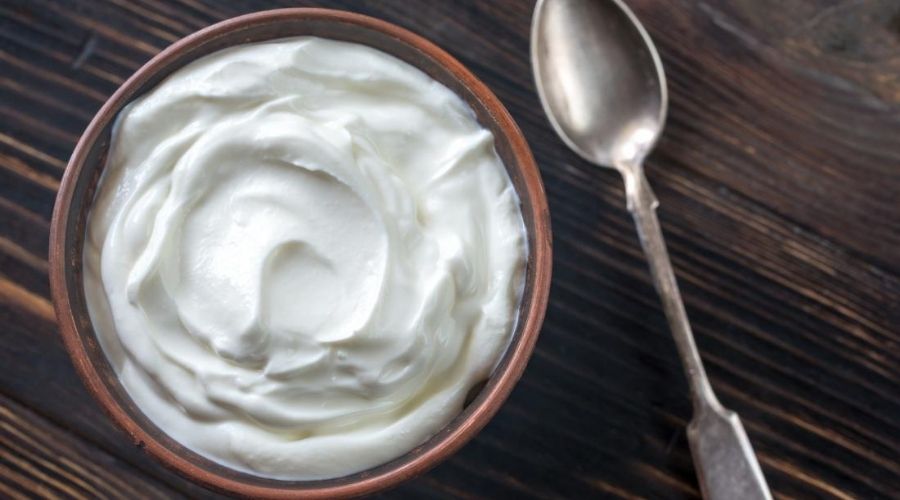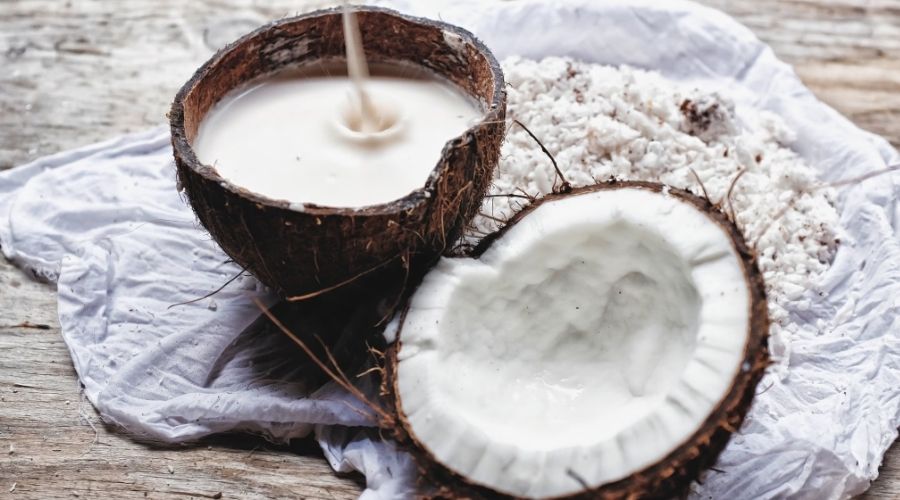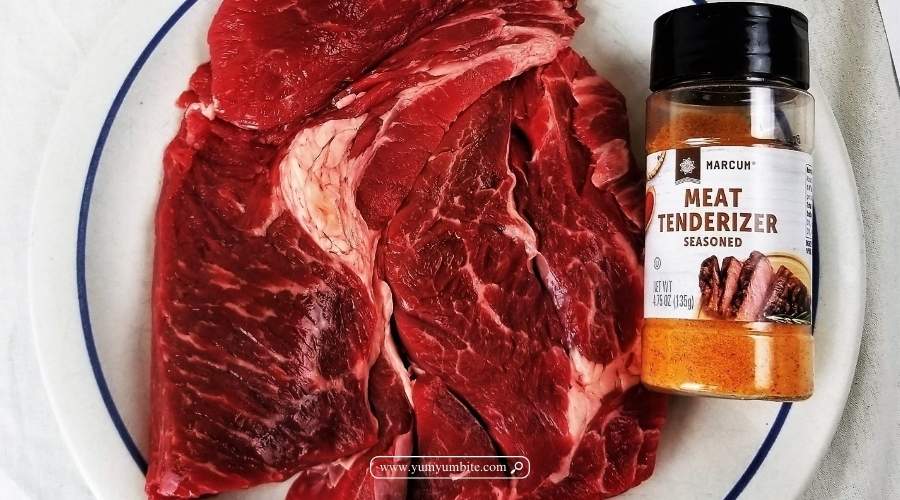Meat tenderizer seasoning is a culinary secret that transforms tough cuts into succulent, melt-in-your-mouth delights.
However, what if you run out of commercial tenderizers or prefer natural alternatives?
Exploring substitutes for meat tenderizer seasoning opens up a world of possibilities, allowing you to experiment with flavors and ingredients you might already have in your kitchen.
In this article, we delve into 12+ effective meat tenderizer seasoning substitutes that not only offer tenderizing benefits but also add unique flavors to your dishes.
Whether you’re cooking up a hearty steak, juicy pork chops, or flavorful chicken, these substitutes will ensure your meat turns out perfectly tender and delicious.
12+ Meat Tenderizer Seasoning Substitutes to Transform Your Cooking
With over 12 alternatives to choose from, including natural options like pineapple juice and yogurt, as well as pantry staples like vinegar and beer, you can achieve tender, flavorful results without relying on commercial products.
These substitutes not only help in tenderizing meat but also infuse it with distinctive flavors that can complement a wide range of recipes.
Pineapple Juice
Pineapple juice is an excellent substitute for meat tenderizer due to its natural enzymes, particularly bromelain, which helps break down meat proteins and tenderize it.
The juice adds a sweet and tangy flavor to the meat, making it ideal for recipes like marinades for pork, chicken, or beef.
However, caution is needed with the amount used, as pineapple juice can impart a strong flavor and overly tenderize the meat if left for too long.
For best results, marinate the meat for no more than 30 minutes to an hour to avoid an overly mushy texture.
Pineapple juice is especially suitable for tropical or Asian-inspired dishes where a sweet and tangy flavor profile complements the overall recipe.
Papaya

Papaya contains the enzyme papain, which is highly effective at breaking down meat proteins, making it a great alternative to traditional meat tenderizers.
Papaya can be used in its fresh form, or you can use dried papaya powder. It adds a subtle sweetness and unique flavor to the meat, enhancing recipes like stews, roasts, or grilled meats.
When using fresh papaya, be cautious of over-marinating, as it can quickly make the meat too tender.
Marinate the meat for 30 minutes to an hour, depending on the thickness and type of meat. Papaya is particularly effective in recipes where a hint of fruitiness can complement the dish, such as in Caribbean or tropical cuisine.
Also Read: 12+ Chorizo Sausage Substitutes to Enhance Your Recipes
Kiwifruit
Kiwifruit, like pineapple and papaya, contains enzymes (actinidin) that effectively tenderize meat by breaking down proteins.
Its tangy and slightly sweet flavor can add a unique taste to your dishes. Kiwifruit is ideal for quick marinades, especially for chicken, pork, or beef.
However, it should be used with caution, as it can over-tenderize meat if left too long, resulting in a mushy texture.
For optimal results, marinate the meat for no more than 30 minutes. Kiwifruit works well in recipes where a fruity, acidic component can enhance the overall flavor, such as in Asian or fusion dishes.
Yogurt

Yogurt contains lactic acid and enzymes that can tenderize meat while also adding a creamy texture and tangy flavor.
It’s a versatile substitute for meat tenderizer and can be used in a variety of recipes, including marinades for chicken, lamb, or beef.
The yogurt not only helps to break down the meat proteins but also imparts a mild, tangy taste.
When using yogurt, be cautious not to marinate the meat for too long, as it can cause the meat to become overly soft and mushy. Typically, marinating for 2 to 4 hours is sufficient.
Yogurt is particularly suitable for recipes where a tangy, creamy component is desired, such as in Indian or Middle Eastern dishes.
Buttermilk
Buttermilk is a fantastic substitute for meat tenderizer due to its lactic acid content, which helps break down proteins in meat, making it tender and juicy. Its slightly tangy flavor also adds a rich, subtle taste to your dishes.
Buttermilk works well for marinating chicken, pork, or beef, and is commonly used in recipes like fried chicken or southern-style dishes.
Caution is advised with the marinating time; generally, 2 to 4 hours is sufficient to tenderize the meat without making it too soft. Buttermilk is ideal for dishes where a tangy, creamy flavor complements the meat, such as in southern or comfort food recipes.
Apple Cider Vinegar
Apple cider vinegar is an effective meat tenderizer due to its acidic nature, which breaks down meat fibers and tenderizes the meat. It adds a mild, fruity tang that works well in marinades for chicken, pork, or beef.
When using apple cider vinegar, it’s important to balance it with other ingredients to avoid an overly acidic flavor.
Typically, a marinade containing apple cider vinegar should be used for 30 minutes to 1 hour, depending on the type of meat and desired tenderness.
This substitute is perfect for recipes where a touch of acidity enhances the overall flavor profile, such as in barbecue or tangy grilled dishes.
Also Read: 12+ Delicious Substitutes for Prosciutto in Beef Wellington!
Wine
Wine, particularly red or white wine, can act as a tenderizer due to its acidity and enzyme content. It adds complex flavors and a subtle depth to meats, making it suitable for marinades or braising liquids.
Red wine is ideal for beef and lamb, while white wine works well with chicken and pork. Caution is needed to avoid over-marinating, as prolonged exposure can alter the meat’s texture and flavor.
A marinade with wine should generally be used for 1 to 2 hours. Wine is best suited for recipes where its rich flavors complement the meat, such as in stews, roasts, or gourmet dishes.
Sour Cream
Sour cream is another excellent meat tenderizer, thanks to its lactic acid, which helps break down proteins and tenderize meat. It also adds a creamy texture and tangy flavor that works well in a variety of recipes.
Sour cream is ideal for marinating chicken, pork, or beef and can be used in dishes like creamy stews or braised meats.
Be cautious not to marinate the meat for too long, as sour cream can make the meat overly tender if left too long. Typically, marinating for 1 to 2 hours is sufficient.
Sour cream is particularly effective in recipes where a creamy, tangy component enhances the dish, such as in savory casseroles or flavorful roasts.
Coconut Milk

Coconut milk is a useful substitute for meat tenderizer due to its natural acidity and fat content, which help to tenderize meat while adding a rich, creamy flavor.
The fat in coconut milk can also contribute to a more moist and flavorful texture.
It’s ideal for marinating chicken, pork, or beef, particularly in dishes where a tropical or creamy element is desired.
Caution should be exercised with the marinating time; usually, 1 to 2 hours is enough to achieve tender results without overpowering the meat with coconut flavor.
Coconut milk is especially suitable for recipes with Caribbean or Southeast Asian influences, such as curry dishes or tropical grills.
Beer
Beer contains natural acids and enzymes that can help tenderize meat, making it a great alternative to commercial meat tenderizers. The slight bitterness and malty flavors of beer can also enhance the taste of meats.
Use beer in marinades for beef, pork, or chicken to add depth and complexity.
Be cautious with the amount of time you marinate the meat; typically, 1 to 2 hours is sufficient to avoid overly soft or mushy textures.
Beer is particularly suitable for recipes like beer-braised beef or grilled meats where its unique flavor can complement other ingredients.
Also Read: 12+ Delicious Basil Pesto Substitute You Need to Try!
Tomato Juice
Tomato juice can act as a meat tenderizer due to its natural acids, which help break down meat proteins.
It also adds a slightly tangy and savory flavor that can enhance various dishes.
Tomato juice is ideal for marinating beef, pork, or chicken, especially in recipes where a tomato-based flavor profile is desired.
When using tomato juice, be careful with marinating time, as extended exposure can alter the texture of the meat. Generally, marinating for 1 to 2 hours is recommended.
Tomato juice is well-suited for recipes like barbecue meats or Italian-style dishes where its tangy richness complements the overall flavor.
Mustard
Mustard, with its acidic and enzymatic properties, can be an effective meat tenderizer. It adds a tangy and slightly spicy flavor that works well with a variety of meats.
Use mustard in marinades for beef, pork, or chicken to both tenderize and flavor the meat. Be cautious of the intensity of mustard’s flavor; for milder results, use a small amount and adjust according to taste.
Typically, marinating for 30 minutes to 1 hour is sufficient to tenderize the meat without overwhelming it with mustard’s tanginess.
Mustard is particularly effective in recipes where a zesty, tangy kick is desired, such as in barbecue or mustard-glazed meats.
How to Make Meat Tenderizer Seasoning Substitute at Home
Creating a homemade meat tenderizer seasoning substitute is a simple and cost-effective way to ensure your meat turns out tender and flavorful, even when you’re out of commercial tenderizers.
This recipe combines natural ingredients that work together to break down meat fibers, providing a similar effect to store-bought tenderizers.
By using a blend of fruit enzymes, acidic components, and spices, you can craft a versatile seasoning mix that not only tenderizes but also enhances the flavor of your meats.
Whether you’re preparing a juicy steak or succulent chicken, this homemade tenderizer will elevate your dishes without the need for chemical additives.
Ingredients:
- 2 tablespoons pineapple juice
- 1 tablespoon soy sauce
- 1 teaspoon ground black pepper
- 1 teaspoon garlic powder
- 1 teaspoon onion powder
- ½ teaspoon dried thyme (optional for added flavor)
- ½ teaspoon dried rosemary (optional for a fragrant touch)
Instructions:
- Prepare the Marinade Base: In a small bowl, combine the pineapple juice and soy sauce. The pineapple juice provides natural enzymes that help tenderize the meat, while the soy sauce adds umami flavor and depth.
- Mix in the Spices: Add the ground black pepper, garlic powder, and onion powder to the bowl. If using, include the dried thyme and rosemary for additional flavor complexity. Stir well to combine all ingredients into a uniform mixture.
- Apply to Meat: Use a brush or your hands to apply the seasoning mixture evenly over the meat. Make sure to coat all sides for thorough tenderization.
- Marinate: Allow the meat to marinate in the refrigerator. For best results, marinate beef, pork, or chicken for 30 minutes to 1 hour. Adjust the marinating time based on the thickness of the meat and desired tenderness. For thinner cuts, a shorter time may be sufficient, while thicker cuts may benefit from the full hour.
- Cook as Desired: After marinating, cook the meat according to your preferred method, whether grilling, baking, or pan-searing.
This homemade meat tenderizer seasoning substitute offers a natural and flavorful alternative to commercial products, making it a great addition to your culinary toolkit.
By leveraging the tenderizing power of pineapple juice and combining it with aromatic spices, this recipe provides a well-rounded solution for achieving tender, succulent meat.
Not only does this substitute eliminate the need for chemical additives, but it also allows you to infuse your meat with additional flavors that complement your dishes.
Whether you’re cooking up a quick weeknight meal or preparing for a special occasion, this homemade tenderizer will enhance your recipes and deliver delicious, perfectly tender results every time.
Can I Use Baking Soda as a Meat Tenderizer Substitute?
Yes, baking soda can be used as a meat tenderizer substitute. It works by raising the pH level on the meat’s surface, which helps break down proteins and make the meat more tender.
To use baking soda, sprinkle a small amount over the meat and let it sit for about 15-30 minutes before rinsing it off and cooking.
Be cautious not to use too much or leave it on for too long, as it can affect the meat’s texture and flavor, making it overly soft and potentially soapy.
What is a Good Non-Acidic Meat Tenderizer Substitute?
If you’re looking for a non-acidic meat tenderizer substitute, try using yogurt. Yogurt contains lactic acid and enzymes that tenderize meat without the sharp acidity of other options. The creamy texture of yogurt also adds a pleasant flavor to the meat.
Simply coat the meat in yogurt and let it marinate for 1-2 hours. This method is especially effective for dishes where a creamy, tangy flavor is desirable, such as in Indian or Mediterranean recipes.
Can I Use Worcestershire Sauce as a Meat Tenderizer Substitute?
Worcestershire sauce can be an effective meat tenderizer substitute due to its acidic content and complex flavor profile.
The acids in Worcestershire sauce help break down meat proteins, while its unique blend of spices adds depth to the flavor.
Use it as part of a marinade, combining it with other tenderizing ingredients like pineapple juice or soy sauce.
Marinate the meat for 30 minutes to 1 hour to achieve tender results. Worcestershire sauce works well with beef and pork, adding a savory, umami touch to your dishes.
Is There a Vegan Meat Tenderizer Substitute?
Yes, there are several vegan meat tenderizer substitutes. One effective option is using fruit juices like pineapple or papaya juice, which contain natural enzymes that break down meat proteins.
Another option is using non-dairy yogurt or buttermilk as a marinade, which provides tenderizing action without animal products.
These alternatives are suitable for plant-based diets and can be used in recipes where a tenderizing effect is needed.
Just be sure to adjust marinating times based on the type of meat or plant-based protein used.
How Long Should I Marinate Meat with a Tenderizer Substitute?
The marinating time with a tenderizer substitute depends on the type of meat and the substitute used.
Generally, for most substitutes like pineapple juice, yogurt, or Worcestershire sauce, 30 minutes to 1 hour is sufficient to tenderize the meat effectively.
For thinner cuts of meat, a shorter marinating time may be adequate, while thicker cuts may benefit from the full hour.
Over-marinating can lead to overly tender or mushy meat, so it’s important to monitor the time and adjust based on your specific recipe and meat type.
References
- https://carinanorthqualitymeats.com.au/news/10-natural-beef-tenderisers/
- https://www.reddit.com/r/Cooking/comments/gb0tuc/meat_tenderizer_powder_options/
- https://www.quora.com/What-can-we-use-as-a-natural-meat-tenderizer
- https://www.thespruceeats.com/homemade-meat-tenderizer-1388329
- https://www.armandhammer.com/articles/baking-soda-meat-tenderizer


